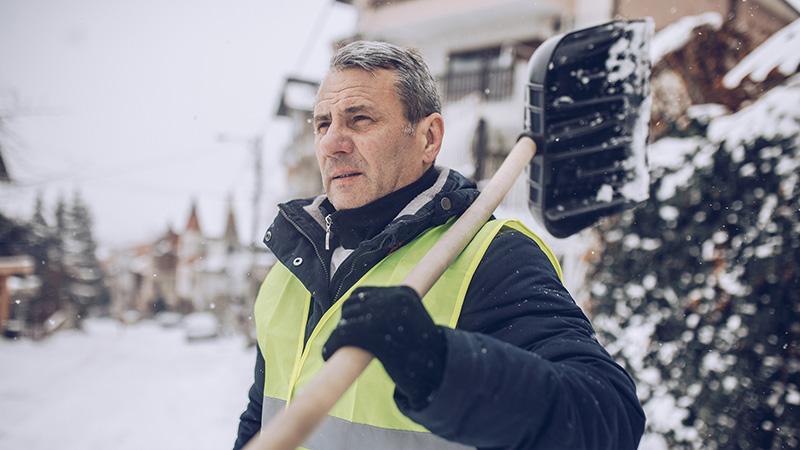Cold Weather and Cardiovascular Disease

The winter months bring cooler temperatures and ice and snow for some. For most people, shoveling snow may not lead to any health problems. Still, it’s important to know how cold weather can affect your heart, especially if you have 心血管病.
Some people who are outdoors in cold weather should avoid sudden exertion, like lifting a heavy shovel full of snow. Even walking through heavy, wet snow or snow drifts can strain some people's hearts.
How does cold weather affect the heart?
Many people aren't conditioned to the physical stress of vigorous outdoor activities and don't know the potential dangers of being outdoors in cold weather. Winter sports enthusiasts who don't take certain precautions can suffer accidental hypothermia.
Hypothermia means the body temperature has fallen below 35 degrees Celsius or about 95 degrees Fahrenheit. It occurs when your body can't produce enough energy to keep the internal body temperature warm enough. 它能杀死你. Symptoms include lack of coordination, mental confusion, slowed reactions, shivering and sleepiness.
Children and the elderly are at special risk because they may have limited ability to communicate or impaired mobility. Elderly people may also have lower subcutaneous fat and a diminished ability to sense temperature so they can suffer hypothermia without knowing they're in danger.
的人 冠心病 经常遭受 心绞痛 (chest pain or discomfort) when they're in cold weather.
Besides cold temperatures, high winds, snow and rain also can steal body heat. Wind is especially dangerous because it removes the layer of heated air from around your body. At 30 degrees Fahrenheit in a 30-mile-per-hour wind, the cooling effect is equal to 15 degrees Fahrenheit. 类似的, dampness causes the body to lose heat faster than it would at the same temperature in drier conditions.
为了保暖,多穿几层衣服. This traps air between the layers, forming a protective insulation. 另外,戴上帽子或头巾. 热量可以通过头部散失. And ears are especially prone to frostbite. Keep your hands and feet warm, too, as they tend to lose heat rapidly.
To help make snow removal safer, here is a list of practical tips.
- 让自己休息一下. Take frequent breaks during shoveling so you don’t overstress your heart. Pay attention to how your body feels during those breaks.
- 学习 心脏病发作警告信号 倾听你身体的声音, but remember this: Even if you’re not sure it’s a heart attack, have it checked out. 分钟的事! Fast action can save lives — maybe your own. 不要等着打911.
- Don’t drink alcoholic before or immediately after shoveling. Alcohol may increase a person’s sensation of warmth and may cause them to underestimate the extra strain their body is under in the cold.
- Consult your health care professional if you have a medical concern or question about exercising in cold weather — especially if it is a substantial increase over your usual physical activity level.
- Be aware of the dangers of hypothermia. 防止体温过低, 多穿几层暖和的衣服, which traps air between the layers forming a protective insulation. Wear a hat because much of your body’s heat can be lost through your head.
- 学习心肺复苏. 有效的旁观者 心肺复苏, provided immediately after sudden cardiac arrest, can double or triple a victim’s chance of survival. Hands-only 心肺复苏 makes it easier than ever to save a life. 如果一个成年人突然倒下, call 911 and begin pushing hard and fast in the middle of the victim’s chest until help arrives.




